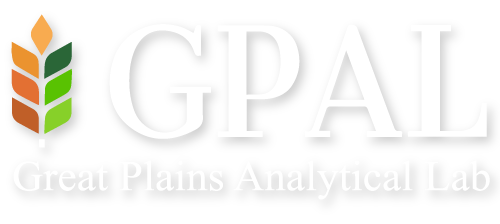Recall Prevention Through Allergen Testing: How Food Companies Can Reduce Risk with Routine Analysis
In the competitive and highly regulated food industry, product recalls due to undeclared allergens are not just costly—they’re brand-damaging and potentially life-threatening to consumers. For food companies committed to safety, compliance, and consumer trust, the best strategy is proactive allergen control through routine testing.
At GPAL (Great Plains Analytical Laboratory), we play a crucial role in helping food producers identify and mitigate allergen contamination risks—whether it’s within processing environments, raw ingredients, or finished products. Through cutting-edge laboratory testing, including ELISA (Enzyme-Linked Immunosorbent Assay), we support food companies in meeting strict regulatory standards while safeguarding their customers from allergen exposure.
Why Allergen Testing Matters for Food Companies
Allergens are among the top causes of food recalls in the United States. The FDA’s “Big 9” list of major allergens includes:
– Milk
– Eggs
– Fish
– Crustacean shellfish
– Tree nuts
– Peanuts
– Wheat
– Soybeans
– Sesame (added in 2023)
Even trace amounts of these allergens can trigger severe reactions, including anaphylaxis. This makes accurate labeling, cross-contact prevention, and regular testing critical components of any food safety plan.
When allergen contamination isn’t detected before distribution, the consequences can be serious:
– Mandatory recalls
– Regulatory fines
– Lawsuits
– Consumer illness or death
– Reputational damage
Routine allergen testing is the frontline defense that allows manufacturers to identify risks early, reduce liability, and protect public health.
Regulatory Expectations: FSMA and Allergen Control
The Food Safety Modernization Act (FSMA) has shifted the focus from reactive responses to preventive food safety controls. Under FSMA, all registered food facilities—domestic and foreign—are required to implement Hazard Analysis and Risk-Based Preventive Controls (HARPC). Allergen management is a central element of this framework.
What FSMA and HARPC Require:
– Conduct a hazard analysis identifying potential allergen risks.
– Establish preventive controls to manage those risks.
– Monitor and verify the effectiveness of allergen controls.
– Keep detailed records of allergen testing and verification.
How Allergen Contamination Happens
Understanding where allergens can enter your production process is key to controlling them. Common contamination sources include:
– Shared processing lines without adequate cleaning
– Improperly labeled or cross-contaminated raw ingredients
– Ineffective sanitation procedures
– Staff or equipment movement across allergen zones
Routine testing—both environmental and product-specific—can help identify these issues before they reach the consumer.
ELISA Testing: The Gold Standard for Allergen Detection
When quantitative data is required to determine exactly how much of an allergen is present, ELISA testing stands out as the industry’s most reliable method.
What Is ELISA?
ELISA (Enzyme-Linked Immunosorbent Assay) is a precise, laboratory-based method used to detect and quantify specific proteins associated with food allergens. It requires:
– Specialized lab equipment
– Highly trained technicians
– Accurate interpretation of results
Testing typically takes 1–4 hours and provides a measurement of allergen concentration in parts per million (PPM). This information is vital for determining compliance with regulatory thresholds and internal safety standards.
Why ELISA?
– Quantitative Results – Know exactly how much allergen is present.
– High Sensitivity – Detects even low levels of contamination.
– Regulatory Acceptance – Recognized by FDA and international standards.
– Broad Applicability – Suitable for raw ingredients, final products, and environmental swabs.
GPAL’s laboratory is fully equipped to perform ELISA testing with speed and accuracy. Our expertise ensures traceable, reproducible results that food manufacturers can rely on for both compliance and consumer protection.
Routine Allergen Testing: A Strategic Investment
Preventing recalls requires more than reactive measures—it demands a culture of continuous risk assessment. Routine allergen testing can be strategically implemented at several points:
- Incoming Ingredient Testing
– Verify that supplier-provided materials match allergen-free specifications.
– Prevent contamination from the supply chain. - Environmental Monitoring
– Swab equipment, surfaces, and processing environments to detect allergen residues.
– Ensure sanitation procedures are effective. - In-Process and Final Product Testing
– Monitor in-line product samples and finished goods.
– Confirm product labels match actual allergen presence. - Post-Cleaning Validation
– Use allergen swabs post-cleaning to ensure lines are free from residues.
– Avoid cross-contact before switching production runs.
Why Choose GPAL for Allergen Testing
At GPAL, we combine scientific rigor with a deep understanding of food manufacturing realities. Our services are designed to help QA and food safety managers make confident decisions, backed by reliable data.
What Sets Us Apart:
– ISO/IEC 17025 Accreditation – Demonstrates technical competence and consistent quality.
– Experienced Staff – Led by experts like Melissa Relvas, Microbiology Manager.
– Responsive Turnaround Times – Get results when you need them.
– Comprehensive Reporting – Clear, actionable data to guide your food safety strategy.
Conclusion: Allergen Testing as a Risk Reduction Tool
In today’s regulatory environment and health-conscious marketplace, routine allergen testing is no longer optional—it’s a best practice and a business necessity. The sooner contamination is detected, the easier it is to prevent a recall, protect consumers, and preserve your brand’s integrity.
With the right testing partner and a proactive plan, your company can meet the highest standards of safety and compliance.
Ready to strengthen your allergen control program?
Contact GPAL today to learn how our advanced testing solutions can help you reduce recall risk and build consumer trust.
